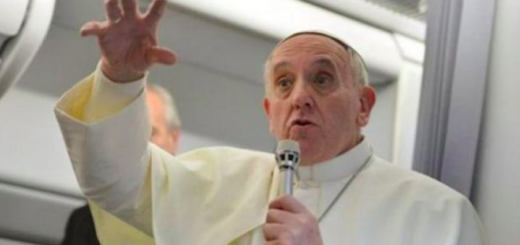Pope’s Message for World Day of Peace

Many faces of slavery yesterday and today
(Note: January 1st was the world day of Peace. For the occasion Pope Francis sent his message of peace exhorting all to help wipe out all forms of slavery from the face of the earth. Reproduced below are two very relevant sections of his message: 1. Exposing the many faces of Slavery and 2.his proposal to build a global fraternity as the remedy to all forms of slavery. james kottoor)
From time immemorial, different societies have known the phenomenon
of man’s subjugation by man. There have been periods of human history in
which the institution of slavery was generally accepted and regulated by law.
This legislation dictated who was born free and who was born into slavery,
as well as the conditions whereby a freeborn person could lose his or her
freedom or regain it. In other words, the law itself admitted that some people
were able or required to be considered the property of other people, at their
free disposition. A slave could be bought and sold, given away or acquired, as
if he or she were a commercial product.
Today, as the result of a growth in our awareness, slavery, seen as a crime
against humanity,[4] has been formally abolished throughout the world. The
right of each person not to be kept in a state of slavery or servitude has been
recognized in international law as inviolable.
Yet, even though the international community has adopted numerous
agreements aimed at ending slavery in all its forms, and has launched various
strategies to combat this phenomenon, millions of people today – children,
women and men of all ages – are deprived of freedom and are forced to live in
conditions akin to slavery. I think of the many men and women labourers, including minors, subjugated in different sectors, whether formally or informally, in domestic or agricultural workplaces, or in the manufacturing or mining industry; whether in countries
where labour regulations fail to comply with international norms and minimum
standards, or, equally illegally, in countries which lack legal protection for
workers’ rights.
I think also of the living conditions of many migrants who, in their dramatic
odyssey, experience hunger, are deprived of freedom, robbed of their
possessions, or undergo physical and sexual abuse. In a particular way, I think
of those among them who, upon arriving at their destination after a gruelling
journey marked by fear and insecurity, are detained in at times inhumane
conditions. I think of those among them, who for different social, political and
economic reasons, are forced to live clandestinely. My thoughts also turn to
those who, in order to remain within the law, agree to disgraceful living and
working conditions, especially in those cases where the laws of a nation create
or permit a structural dependency of migrant workers on their employers, as,
for example, when the legality of their residency is made dependent on their
labour contract. Yes, I am thinking of “slave labour”.
I think also of persons forced into prostitution, many of whom are minors, as
well as male and female sex slaves. I think of women forced into marriage,
those sold for arranged marriages and those bequeathed to relatives of their
deceased husbands, without any right to give or withhold their consent.
Nor can I fail to think of all those persons, minors and adults alike, who are
made objects of trafficking for the sale of organs, forrecruitment as soldiers,
for begging, for illegal activities such as the production and sale of narcotics,
or for disguised forms of cross-border adoption.
Finally, I think of all those kidnapped and held captive by terrorist groups,
subjected to their purposes as combatants, or, above all in the case of young
girls and women, to be used as sex slaves. Many of these disappear, while
others are sold several times over, tortured, mutilated or killed……
Globalizing fraternity, not slavery or indifference
6. In her “proclamation of the truth of Christ’s love in society”,[9] the Church
constantly engages in charitable activities inspired by the truth of the human
person. She is charged with showing to all the path to conversion, which
enables us to change the way we see our neighbours, to recognize in every
other person a brother or sister in our human family, and to acknowledge his
or her intrinsic dignity in truth and freedom.
In the light of all this, I invite everyone, in accordance with his or her specific
role and responsibilities, to practice acts of fraternity towards those kept in a
state of enslavement. Let us ask ourselves, as individuals and as communities,
whether we feel challenged when, in our daily lives, we meet or deal with
persons who could be victims of human trafficking, or when we are tempted to
select items which may well have been produced by exploiting others. Some
of us, out of indifference, or financial reasons, or because we are caught up
in our daily concerns, close our eyes to this. Others, however, decide to do
something about it, to join civic associations or to practice small, everyday
gestures – which have so much merit! – such as offering a kind word, a
greeting or a smile. These cost us nothing but they can offer hope, open doors,
and change the life of another person who lives clandestinely; they can also
change our own lives with respect to this reality.
We ought to recognize that we are facing a global phenomenon which exceeds
the competence of any one community or country. In order to eliminate it, we
need a mobilization comparable in size to that of the phenomenon itself. For
this reason I urgently appeal to all men and women of good will, and all those
near or far, including the highest levels of civil institutions, who witness the
scourge of contemporary slavery, not to become accomplices to this evil, not
to turn away from the sufferings of our brothers and sisters, our fellow human
beings, who are deprived of their freedom and dignity. Instead, may we have
the courage to touch the suffering flesh of Christ,[12] revealed in the faces
of those countless persons whom he calls “the least of these my brethren”
(Mt 25:40, 45).
We know that God will ask each of us: What did you do for your brother?
(cf. Gen 4:9-10). The globalization of indifference, which today burdens the
lives of so many of our brothers and sisters, requires all of us to forge a new
worldwide solidarity and fraternity capable of giving them new hope and
helping them to advance with courage amid the problems of our time and the
new horizons which they disclose and which God places in our hands.
















